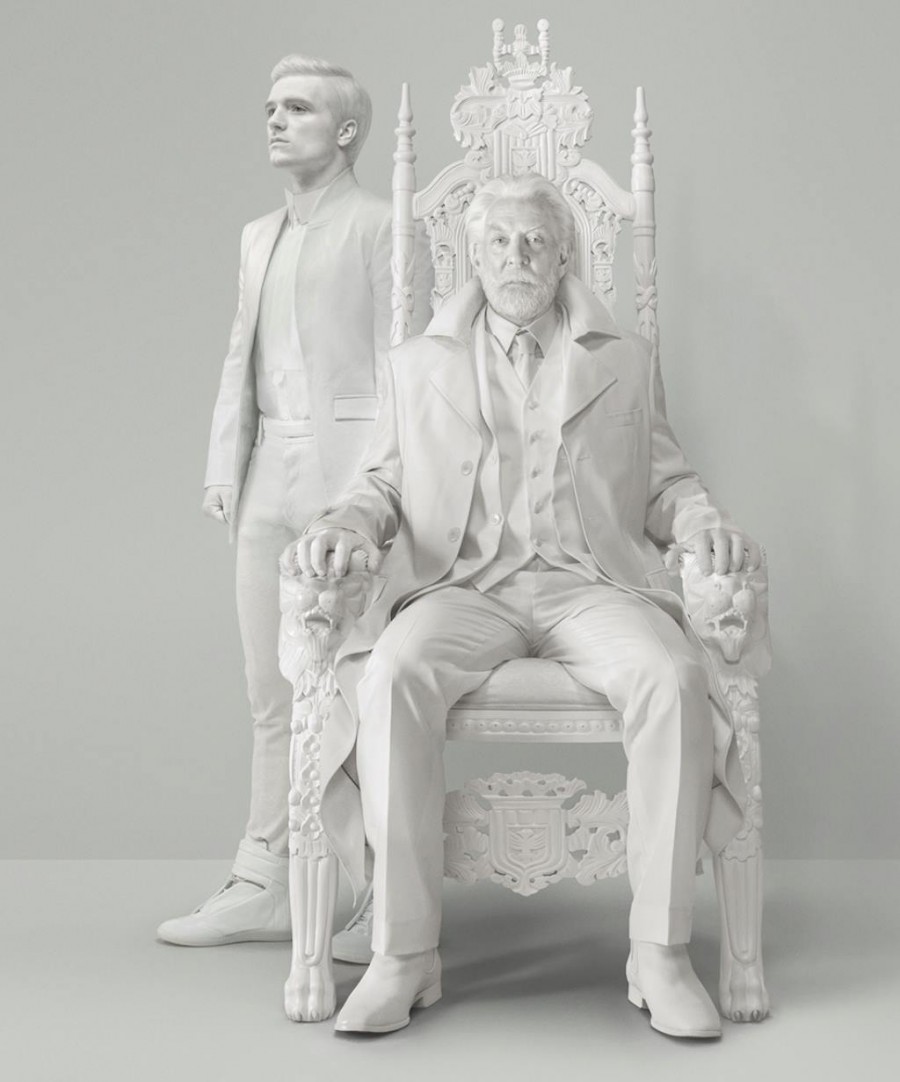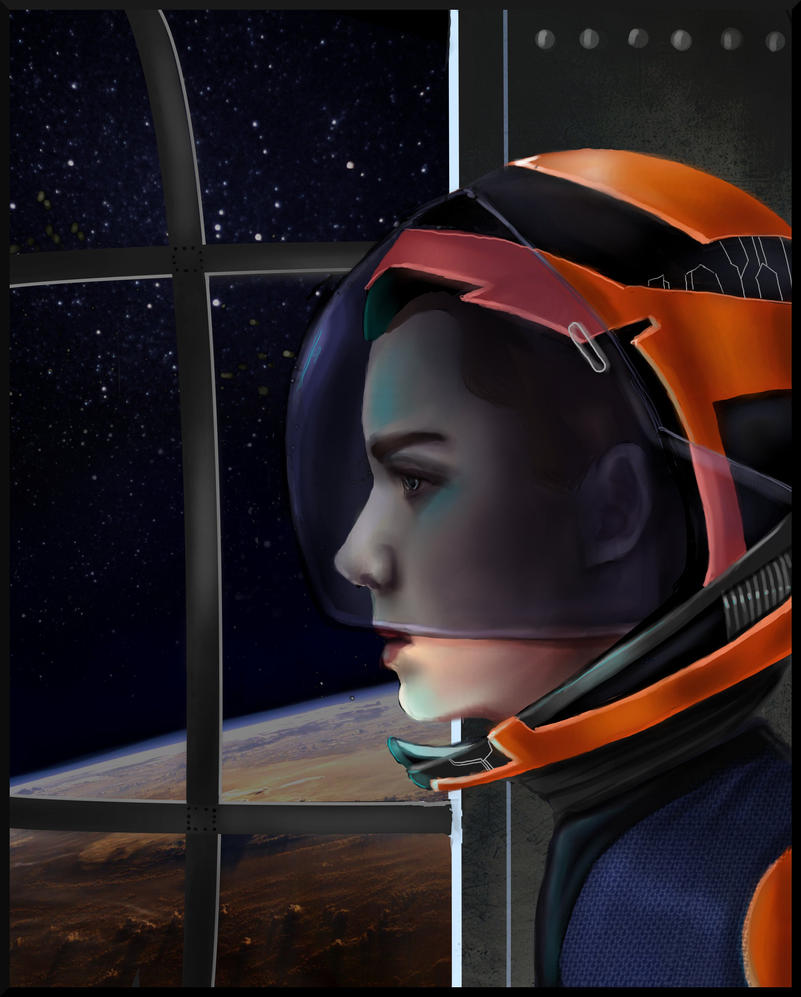Over the past few years dystopian literature has been dominating the YA bookshelves and there's no question that much of this has to do with Suzanne Collins' wildly popular Hunger Games series. I recently reread Ender's Game by Orson Scott Card in preparation for the movie and unsurprisingly found that it had a lot in common with The Hunger Games. Since these two novels (along with George Orwell's 1984) are the most popular and iconic dystopian novels still read today, it begged the question: what makes these dystopian novels great?
First, a basic explanation of the characteristics of a dystopian novel:

"A futuristic, imagined universe in which oppressive societal control and the illusion of a perfect society are maintained through corporate, bureaucratic, technological, moral, or totalitarian control. Dystopias, through an exaggerated worst-case scenario, make a criticism about a current trend, societal norm, or political system" (source).
There's no doubt that
Ender's Game and
The Hunger Games can be considered dystopian novels. Under a oppressive government, both Ender and Katniss are thrust into a world where their every move is watched, where important information is kept from them, and where peace and resolution rests on their shoulders. But I think there are a few things that happen to Ender and Katniss that make these novels truly great dystopian books:
Ender's and Katniss' physical and emotional isolation from their family and friends is one of the most important and influential part of these novels. As a third, Ender is resented and bullied (putting it lightly) by his older brother Peter but has a strong and loving relationship with his sister Valentine. Likewise, Katniss' relationship with her cold and detached mother couldn't be more different than her strong and protecting relationship with her younger sister, Prim. But both Ender and Katniss are not just pulled away from their family and their loving sisters, but are manipulated to go willingly. Ender is told, "If there's a chance that because you're with the fleet, mankind might survive and the buggers might leave us alone forever -- then I'm going to ask you to do it. To come with me" (25). Colonel Graff makes Ender agree three times until he gives the answer he wants to hear: "' I don't want to go,' said Ender, "but I will '" (26).
Katniss, too, is "powerless against the reaping" (15) but leaves her family willingly, "With one sweep of my arm, I push her behind me. 'I volunteer!' I gasp. 'I volunteer as tribute!'" (22). The dystopian society of each novel has no problem forcing children to leave their homes, but by making them leave
willingly, Ender and Katniss isolate themselves in a way the Capitol or battle school never could.
Once they decide to leave, both Ender and Katniss enter a completely unnatural world, a pseudo earth where the game makers and the IF manipulate their every move. While Ender's world is literately turned upside down ("the enemy's gate is DOWN"), Katniss enters an arena that is not only designed, but is actively controlled by the game makers. But these unnatural worlds of the space station and the arena only reflect the deeper distortion of life inside. Here, they suffer through the manipulations of Colonel Graff and President Snow and are even further isolated by losing the friends they manage to make there. Both Rue and Alai are fellow competition, but they accept, befriend, and help Katniss and Ender respectively. There's no reason for Rue to help Katniss, but in the form of a small finger pointing up to a wasp nest she does -- and their alliance in the games turns quickly into a real friendship. Likewise Ender views Alai as an enemy, part of Bernard's gang, "what did Ender have to say to him?" (58) But in the game room, like Rue and Katniss, they learn to help one another and they, too become fast friends:
"'Here, snag my hand!'" Alai called. Ender held out his hand. Alai took the shock of impact and helped Ender make a fairly gentle landing against the wall (59).
"Bernard knew that Ender and Alai had learned to use the guns together. And Ender and Alai were friends. Now others might believe that Ender had joined his group, but it wasn't so. Ender had joined a new group. Alai's group" (61).
Because both Ender and Katniss find friendship when they thought they could not (and indeed, when it was
designed so that they could not)
the loss of their friends cuts even deeper. As Rue dies, Katniss, forgetting her own risk in the Games, sings her a song from her own childhood:
"Rue's eyes have fluttered shut. Her chest moves but only slightly. My throat releases the tears and they slide down my cheeks. But I have to finish the song for her" (235).
More than that, Katniss "decorates [Rue's] body in the flowers. Covering the ugly wound. Wreathing her face. Weaving her hair with bright colors" (237)
Alai does not die in
Ender's Game, but he nonetheless represents a symbolic death of Ender's friends in battle school. One of the most poignant moments in the novel is Alai's kiss and whisper of "Salaam" to Ender shortly after they become friends: "Whatever it meant to Alai, Ender knew it was sacred; that he had uncovered himself for Ender…that was what Alai had given him; a gift so sacred that even Ender could not be allowed to understand what it meant" (69-70). But Colonel Graff continues to isolate Ender away from his friends and Alai eventually tells Ender:
"Alas, it is not meant to be." "What isn't?" "Peace. It's what salaam means. Peace be unto you." …Ender turned around. Alai was already gone. Ender felt as if a part of himself had been taken away, an inward prop that was holding up his courage and confidence…The most terrible thing, though was the fear that the wall could never be breached, that in his heart Alai was glad of the separation, and was ready to be Ender's enemy. For now that they could not be together, they must be infinitely apart, and what had been sure and unshakable was now fragile and insubstantial" (171).
Separating the protagonists from natural love and friendship amplifies this feeling of being "fragile and insubstantial" in both Katniss and Ender and in this isolation they lose a part of themselves. On top of this, their time in the arena and in battle school forces Ender and Katniss to see the worst of humanity.
They end up not only loosing the ability to trust others, but the ability to trust themselves. Both Katniss and Ender are not killers, yet throughout both novels, they have to kill to survive and they doubt their own humanity over and over again. Katniss knows Peeta as the boy who gave her bread when she was hungry, but the games shift her perspective: "He hasn't accepted his death. He is already fighting hard to stay alive. Which also means that the kind Peeta Mallark, the boy who gave me the bread, is fighting hard to kill me" (60). We later find out that nothing could be further from the truth, but the games force Katniss to lose trust in people, even the best of people. Later, in the middle of the games Katniss reflects on her first kill:
"I don't know why I should even care about the boy. Then I realize…he was my first kill….Numerous animals have lost their lives at my hands, but only one human. I hear Gale saying 'How different can it be, really?'…I killed a boy whose name I don't even know. Somewhere his family is weeping for him"(243).
Similarly Ender is smart enough to know that everything that happens to him in battle school is part of the 'game'. But it doesn't stop himself from constantly questioning his ability to be a killer: "This was supposed to be a game. Not a choice between his own grisly death and an even worse murder. I'm a murderer, even when I play. Peter would be proud" (65). His ability to be like Peter in any way haunts Ender throughout his time in battle school:
"This game tells filthy lies. I am not Peter. I don't have murder in my heart. And then a worse fear, that he was a killer, only better at than Peter ever was; and that it was this very trait that pleased the teachers" (118).
Katniss and Ender both are forced to let go of the world they know, forced over and over again to suffer deep loss and witness the worst of humanity,
and for that their efforts to ultimately save humanity is all the more poignant. Because in this isolated, manipulated world they learn more about the world than they ever would have. Ender reflects:
"That is the Earth, he thought. Not a globe thousands of kilometers around, but a forest with a shining lake, a house hidden at the crest of the hill, high in the trees, a grassy slope leading upward from the water, fish leaping and birds strafing to take the bugs that lived at the border between water and sky. Earth was the constant noise of crickets and winds and birds. And the voice of one girl…" (245).
Isolation from family, friends, and the natural earth illustrates just what Katniss and Ender are fighting for: Humanity. Not, as the Capitol and Colonel Graff would believe, humanity's
existence, but for what humanity is at its core, for
everything that makes us human.








